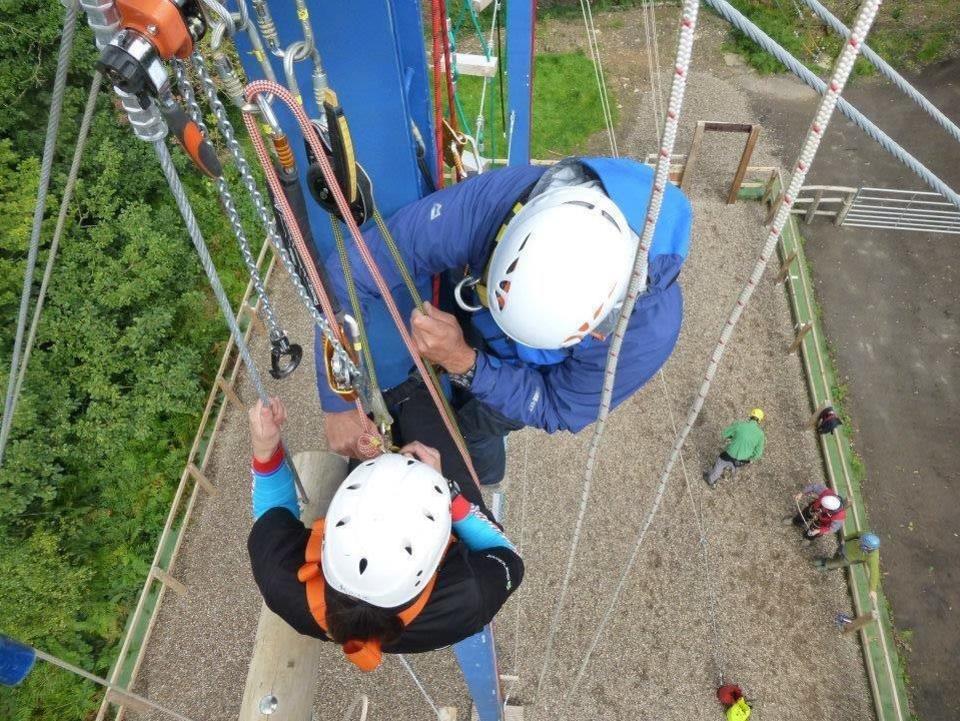DEVELOPING CHARACTER: USING GROWTH MINDSET THEORY
Posted on 23rd September 2019 at 17:18
Developing character and helping people to stay physically and mentally healthy sits at the core of what we do. We have been using Carol Dweck's theories about growth mindsets in our delivery at Plas Gwynant for a while now as we recognise the positive impact it can have on increasing resilience, confidence, engagement in learning, and attainment.
Let's look briefly at what it is, how and why we use it, and what a programme feels like when it's used as one of our learning models. We've also pulled together a few ways that you can apply it back in the classroom, just in case.
WHAT IS A GROWTH MINDSET?
With a renewed personal development push in the curriculum from September, choosing to thread growth mindset theory through your residential could be an ideal way to:
1. enhance the programme and deepen the learning, and
2. demonstrate a meaningful strategy for supporting learners to develop character.
Those with a growth mindset see intelligence as fluid; something which will increase through hard work, grit and resilience. It is:
a belief that intelligence is not fixed and that it can be improved through focussed effort,
having the confidence and self-belief to:
- take and learn from advice and criticism
- ignore the low aspirations of peers
- react to failure by trying harder
thriving on challenge; throwing yourself at difficult tasks
having learning goals.
Those with a fixed mindset see intelligence as being inherent. They are good at some things naturally and see no reason to develop other talents or skills beyond their capabilities.
This 30 second briefing from TES is worth further reading, especially as I stole borrowed the paragraph above from it!

HOW IS IT USED ON A COURSE?
We always create an environment of high challenge and high support, and when asked to apply growth mindset theory so explicitly we can make a few adjustments.
Sometimes we start the programme by introducing the concept of comfort zones with a slideshow of previous participants taking part in various challenging activities. WIth the scale of our environment and our technical skillset so apparent and presented in this way, it can be interesting to see the different responses to the images! We use this to capture the level of challenge that students feel when asked to participate in a session.
Naturally, we learn through doing so we quickly get outside to take on high-challenge sessions such as climbing, abseiling on cliffs, gorge scrambling and so on. Something that we passionately believe is that memorable learning happens in memorable places; the things that participants learn on a quality residential experience should stick with them.

Gorge scramble at Plas Gwynant

High Ropes at Frank Chapman Centre
Throughout the week, the students are asked to reflect on their personal levels of challenge, and to identify strategies that might be used to overcome these challenges; this includes peer feedback sessions, target setting, and thinking about how newly acquired skills can be transferred back to other areas of their lives.
Each course:
has focussed objectives developed in partnership with school
contains progressively challenging, experiential activities
uses journals to support learning and extend impact
is led by qualified, experienced tutors in a supportive atmosphere
5 TIPS THAT COULD BE USED IN YOUR TEACHING

BE CAREFUL WITH PRAISE
Complimenting intelligence or achievement can reinforce it as a fixed trait. Instead, we acknowledge the importance of hard work and trying new things; a phrase like "I like your work - you have worked hard to achieve that" can be very motivational.

CATCH THEM BEING PERSISTENT
Rather than shower people with praise everytime they apply themselves, we like to catch people sticking at something - "You're working hard at that aren't you".

ENCOURAGE STUDENTS TO EXPAND THEIR ANSWERS
We encourage participants to reflect on their experiences and our questions, and give considered responses. We provide opportunities for this to happen through:
1. Collaborative problem-solving activities
2. Reflective feedback sessions

ALLOW THEM TO FAIL
Alan Shearer is the all-time Premier League record goalscorer..... but he missed THOUSANDS of shots! Linked to the idea of "antifragile" children, exposure to normal stresses and strains can be vital for future wellbeing.

SAY "YET" MORE OFTEN
When a student says "I don't know how to do it", help them replace it with "I don't know how to do it yet"
A simple but effective habit...
WHAT HAVE TEACHERS SAID?

We always ask the students for feedback on the way home, and the comments this year blew us away.... There were very few comments about which activities they enjoyed the most.
Instead, the vast majority of the comments confirmed the learning and development that had taken place.... students understood WHY they were doing the activities.
Ivanhoe College
If you'd like a downloadable flyer for our Growth Mindset programmes, you can find them at:
Tagged as: Brilliant Residentials, Character, Frank Chapman, Growth Mindsets, Outdoor Education, Plas Gwynant
Share this post:

